 |
|||||||||||||||||

Legacy of Anshel Brusilow
|
For three decades, Anshel Brusilow has challenged his UNT music students to "play above their heads." As director of the orchestral studies program at UNT, Brusilow treated his students as professionals, preparing them for the competitive field of music and arming them with the experience and knowledge they needed to succeed.
"He treated us as if we were the Philadelphia Orchestra," says former UNT Symphony Orchestra member Chris Farrell ('94), now a violist in the Nashville Symphony. "He expected the same kind of conduct and playing. Brusilow is by far the best." On April 23, the retiring conductor directed his farewell concert at UNT, leading the Symphony Orchestra in Prokofiev's Alexander Nevsky with the UNT Grand Chorus and ending with Tchaikovsky's 6th Symphony. When Brusilow stepped away from the podium that night to a standing ovation, he left behind a legacy of musical greatness. That legacy is carried on today by his former students across the world and will be reflected in the Anshel Brusilow Chair in Orchestral Studies, created primarily to raise scholarship money for orchestral students. "It's been wonderful, and I've loved every minute of it," Brusilow told the concert crowd.
"One would be very hard pressed to cite another university that has had for more than three decades someone as head of orchestral studies with the combination of the richness of professional experience and the depth of musicality of Anshel Brusilow," College of Music Dean James Scott says. "Without any pretense, he has not only communicated his own musical visions, but has passed on the legendary traditions of such venerable orchestras as the Cleveland Orchestra under George Szell and the Philadelphia Orchestra under Eugene Ormandy." Great expectations Brusilow's musical journey began as a young child. He entered the Curtis Institute of Music in Philadelphia at age 11 as a student of the world-famous violinist Efrem Zimbalist.
At 16, he was accepted as a conducting student by renowned conductor Pierre Monteux. He performed as a soloist with major U.S. orchestras, including the San Francisco Symphony, New York Philharmonic, Chicago Symphony and Boston Symphony. He served as associate concertmaster of the Cleveland Orchestra under Szell and concertmaster of the Philadelphia Orchestra under Ormandy. In 1970, he began conducting the Dallas Symphony Orchestra. Then, in 1973, he joined UNT for one year as a visiting professor. Ultimately, he decided to stay. "I had fallen in love with the school," he says. "When I think about it, it was a very important turning point in my life because I went from performance to teaching, and those are two different worlds. Young students may be performing a work they may have never heard before. That's the difference; that's really teaching."
In his first tenure at UNT from 1973 to 1981, Brusilow established the UNT Chamber Orchestra to perform works for smaller ensembles. He left to teach for a few years at Southern Methodist University and returned to UNT in 1989. Under his leadership, the UNT orchestra performed at the Mozart Bicentennial at Lincoln Center, toured Spain and other Mediterranean countries and performed Verdi's Requiem in Monterrey, Mexico. Former students say Brusilow's great expectations — though overwhelming at first — helped propel them beyond the level of university students. When Madeline Adkins ('98), daughter of Professor Emeritus Cecil Adkins, entered her last year of college, Brusilow told the UNT Symphony Orchestra concertmaster she would be performing Rimsky-Korsakov's Scheherezade and Strauss's Le Bourgeois Gentilhomme — both demanding pieces.
In addition to teaching young concertmasters such as Adkins, Brusilow mentored conducting students who have gone on to successful careers. Hector Guzman ('81) — now the music director of the Plano Symphony Orchestra, Irving Symphony and San Angelo Symphony — studied with Brusilow at UNT for his bachelor's degree, followed him to SMU for his master's degree and returned to UNT for doctoral studies with Brusilow. "I lost my father in 1981, and he became like a father to me," says Guzman, who conducts internationally and says he still keeps Brusilow's teachings in mind today. "He carried the weight and name of Anshel Brusilow with his history with the Philadelphia Orchestra, and he put the UNT orchestra, as far as the conducting world, on the map."
Encouraging success His assignments were tough but taught lifelong lessons, remembers Matthew Mailman ('95 D.M.A.), son of former UNT music professor Martin Mailman, who died in 2000. Matthew recalls studying Sibelius' 2nd Symphony in Brusilow's doctoral conducting class. The assignment was to memorize the piece and conduct it — all 40 minutes of it. It was a hard assignment, a student pointed out. But Brusilow told them, never mind that. Just do it. "I got many layers of inspiration from that, and that is what I tell my students," says Mailman, now a professor of conducting at Oklahoma City University and artist conductor in residence at Opera in the Ozarks. "This may be difficult, but just do it."
Brusilow's impact had far-reaching effects beyond the orchestra and the conducting program, says Rob Frank ('88 M.M., '95 D.M.A.), chair of the theory and composition department at Southern Methodist University. Brusilow helped him and other composition students launch their careers when he performed their pieces with the UNT Symphony Orchestra and the Richardson Symphony. And his support didn't end with graduation. "I would send him orchestral works that I had written every couple of years," Frank says. "He always wrote back and had wonderful comments and suggestions." Kristopher Carter ('93) studied composition at UNT and played double bass in the UNT Symphony Orchestra.
"Music is an incredibly competitive profession, and I do think the attitudes and expectations that he trained us to have are essential to be able to stand out in this career," Carter says. Now in Los Angeles, Carter is one of the youngest composers to work for Warner Bros. He has received one Emmy Award and five other nominations for his TV compositions and has just finished his 15th independent feature film score. "Even though I've graduated, he is always so welcoming, encouraging and ready to hear your stories," Carter says. "That has been really special to me." In his retirement, Brusilow plans to continue conducting the Richardson Symphony, which he has been leading since 1992, and work on a book about his experiences as a concertmaster and conductor. And after three decades at UNT, he still plans to attend concerts, watching, critiquing and supporting. "I will be there at UNT," he says. "I feel it's my school."
If you make a donation to the Anshel Brusilow Chair in Orchestral Studies by Aug.1, your gift will be matched dollar for dollar by former UNT music faculty member Sue Bancroft and her husband, Christopher ('88), leaders of a fundraising campaign that launched in 2007. The Bancrofts issued their challenge match April 23. As of June 1, more than $755,000 in gifts and pledges had been received. Contributions include $500,000 from the Lupe Murchison Foundation, a Dallas-based charitable organization of the estate of former UNT System Regent Lucille G. Murchison. The initial endowment goal is $1 million. Earnings from the Brusilow fund will be used primarily to provide scholarships for UNT orchestral students. You can check the latest endowment figures and make your secure contribution online at www.music.unt.edu/anshel. You also can mail your donation to University of North Texas, Division of Advancement, P.O. Box 311250, Denton, Texas 76203-1250. Or call the College of Music at (940) 565-2243 or (940) 369-7979.
|
||||||||||||||||||||||||||||||||||||||||||||||||||||||||||||||||||||||||||||
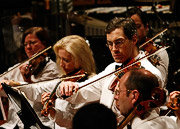
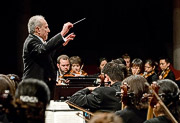 He has been lauded as one of the nation's best, drawing in students who wished to play in his orchestra.
He has been lauded as one of the nation's best, drawing in students who wished to play in his orchestra.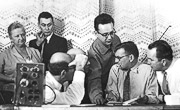
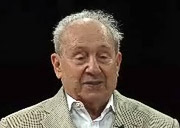
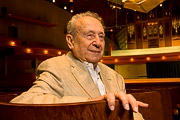 "To this day, a lot of professionals haven't gotten the opportunity to play some of those solos," says Adkins, now associate concertmaster of the Baltimore Symphony Orchestra. "It was really amazing to accomplish so much."
"To this day, a lot of professionals haven't gotten the opportunity to play some of those solos," says Adkins, now associate concertmaster of the Baltimore Symphony Orchestra. "It was really amazing to accomplish so much."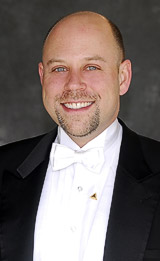
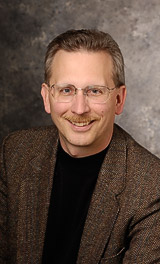
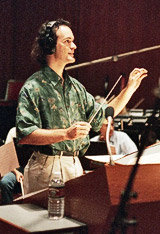
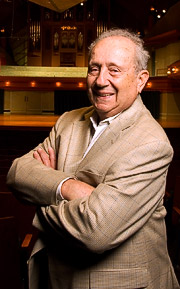 Support the legacy
Support the legacy